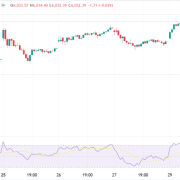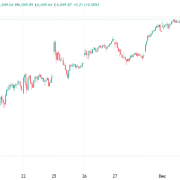
The recent fall of Bashar al-Assad’s regime in Syria marks a seismic political shift, unlocking both challenges and opportunities for Turkey.
Experts and business leaders anticipate significant ripple effects on Turkey’s economy, particularly through reconstruction efforts and workforce dynamics.
Turkish construction and cement sectors to spearhead rebuilding efforts
Shares in Turkish construction and cement companies surged on Monday following the announcement of Assad’s ouster.
Bursa Çimento and Oyak Çimento climbed 5.3% and 9.9%, respectively, while steelmaker Iskenderun Demir Çelik saw a 10% increase.
Analysts attribute these gains to expectations of a pivotal role for Turkish companies in rebuilding war-torn Syrian cities.
“Cement producers like Limak Doğu Anadolu Çimento and Oyak Çimento are poised to benefit, while construction giant Enka Inşaat is likely to lead large-scale projects,” said Yakup Toktamış of Trive Yatırım.
Turkey’s proximity and existing trade ties with Syria position its firms advantageously for contracts tied to the rebuilding of infrastructure devastated during the 13-year civil war.
Brokerage firm Info Yatırım’s Yusuf Doğan added, “Cement and steel will be the core catalysts for Syria’s reconstruction, creating long-term opportunities for Turkish companies.
However, the timeline for project implementation may temper investor expectations.”
Economic challenges in Turkey loom as Syrian workers begin returning home
This trend is raising concerns among Turkish companies that depend on Syrian labor, which has become a cornerstone of several industries, including textiles, agriculture, and manufacturing.
At the same time, as stability returns to Syria, some Syrian refugees have started heading back.
Last year alone, over 108,000 Syrians received work permits in Turkey.
The departure of this workforce could strain industries reliant on low-cost labor, driving up costs and reducing profitability.
“Given weak domestic demand, companies may struggle to pass on these costs to consumers,” warned industry analysts.
Despite these challenges, some business leaders remain optimistic.
Mehmet Kaya, president of Diyarbakır’s Chamber of Commerce, stated, “Syrians form a small percentage of the labor force in Turkey. Many of them have established businesses or moved into white-collar roles, suggesting not all will leave.”
In Gaziantep, a hub for Syrian businesses and industries, Syrian workers make up just 3% of the labor force, according to Fikret Kileci of the Anatolian Exporters’ Association.
Adnan Ünverdi, president of Gaziantep’s Chamber of Commerce, echoed this view, noting that Syrian-owned businesses primarily employ Syrians.
“If they return, operations might see short-term disruptions, but companies can easily fill gaps with unemployed Turkish workers,” Ünverdi said.
Bilateral trade revival anticipated
Bilateral trade between Turkey and Syria, which peaked at $2.3 billion in 2010 before plunging to $565 million in 2012 due to the conflict, is expected to rebound.
“Trade between Türkiye and Syria will gain momentum,” said Cemal Demirtaş from Ata Yatırım.
The reconstruction process could significantly boost Turkey’s exports to Syria, particularly in cement and steel.
However, the scale and pace of this revival will hinge on political and economic developments in Syria.
While demand for Turkish goods may rise, global economic uncertainties and geopolitical risks could temper gains.
Geopolitical dynamics: a boon for Erdoğan’s agenda
Bashar al-Assad’s fall is seen as a strategic win for Turkish President Recep Tayyip Erdoğan, whose government has backed Syrian opposition groups throughout the conflict.
With Assad gone, Turkey’s influence in Syria could expand, allowing Ankara to curb Kurdish separatists in northeastern Syria and secure its southern border.
Economist Timothy Ash described this development as a “genius move by Erdoğan,” emphasizing the strategic and economic benefits Turkey stands to gain.
Investment outlook: cautious optimism
The fall of Assad has driven optimism in Turkish financial markets, with construction and cement indices seeing strong gains.
However, analysts urge caution, highlighting the long timelines for infrastructure projects and potential volatility in Syria’s political landscape.
Serhat Başkurt of ALB Yatırım highlighted the importance of firms like Enka Inşaat and Bursa Çimento. “Enka’s expertise in international projects positions it as a leader in Syria’s reconstruction, while Bursa Çimento’s capacity gives it an edge in cement supply,” he said.
While investors remain bullish, the broader implications for Turkey’s economy—ranging from labor market adjustments to trade dynamics—underscore the complexity of navigating the post-Assad era.
The post Assad’s fall opens doors for Turkish businesses while raising labour market concerns appeared first on Invezz









